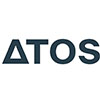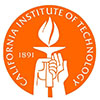美国国立卫生研究院国家癌症研究所博士后

美国国立卫生研究院国家癌症研究所博士后
NIH National Cancer Institute
Postdoctoral Fellow - CRISPR Screening, Next Generation Sequencing
A postdoctoral position is available in the Molecular and Cell Biology Section in the Neuro-Oncology Branch, CCR, NCI, NIH. The position is offered to apply a whole genome approach in the study of mechanisms involved in cancer therapy resistance, such as DNA repair and metabolic reprogramming. The ideal candidate will play a leading role in providing computational and biological insights by analyzing large data sets derived from genomics, epigenetics, and proteomics experiments. The position will involve the design, preparation, and analysis of applications involving high-throughput DNA sequencing methods for a variety of assays, including RNA-seq, exon sequencing, ATAC-seq, DNase-seq, ChIP-Seq, and genetic screening.
About NCI’s Center for Cancer Research
The CCR is an intramural research component of the NCI. The CCR’s enabling infrastructure facilitates clinical studies at the NIH Clinical Center, the world’s largest dedicated clinical research complex; and provides extensive opportunities for collaboration with other investigators at the forefront of medical research. This environment enables scientists and clinicians to undertake high-risk, high-impact, laboratory- and clinic-based investigations. Investigators are supported by a wide array of intellectual, technological, and research resources. This includes surgical and pathology facilities; animal facilities; and dedicated, high-quality technology cores. For an overview of CCR, please visit: http://ccr.cancer.gov/. The NCI Center of Excellence in Immunology (CEI) also provides a network of diverse intellectual, financial, and physical resources to help develop new initiatives, projects, and collaborations. For more information of CEI, please visit: https://ccrod.cancer.gov/confluence/display/COEI/Home.
The NOB also offers collaborative opportunities and resources through its various laboratory programs, encompassing areas of research in cell biology, genomics, and metabolomics, as well as its pre-clinical translational research program. For more information on NOB, please visit: https://ccr.cancer.gov/Neuro-Oncology-Branch.
The successful candidate must
1. Hold a recent Ph.D. in computational biology, bioinformatics, or a related field.
2. Be highly motivated, able to conduct semi-independent research, and function as part of an interdisciplinary team.
3. Have an interdisciplinary background in bioinformatics and computational biology, and advanced expertise in the analysis and interpretation of sequencing data generated in-house and its integration with other “omics” data sources such as ENCODE and TCGA.
4. Have direct experience with many of the following laboratory techniques: cell culture and transfection, epigenetics, DNA/protein methylation profiling, protein complex profiling, chromatin immunoprecipitation (ChIP), next-generation sequencing, ChIP-Seq, CRISPR screening.
5. Have coding experience in R, Python, or Perl. Skills in Shell Scripting and working in a server environment including cloud-based development environments is preferred.
6. Demonstrate applied bioinformatics/computational proficiency as evidenced by relevant publications in peer-reviewed journals.
7. Possess excellent communication skills and be fluent in both spoken and written English.
Please assemble curriculum vitae, statement of research interests, and three letters of reference into a single PDF file and email to the attention of: Chunzhang Yang, Ph.D., Neuro-Oncology Branch, at chunzhang.yang@nih.gov.
HHS, NIH, and NCI are Equal Opportunity Employers.
The NIH and NCI are dedicated to building a diverse community in its training and employment programs and encourages the application and nomination of qualified women, minorities, and individuals with disabilities.

















